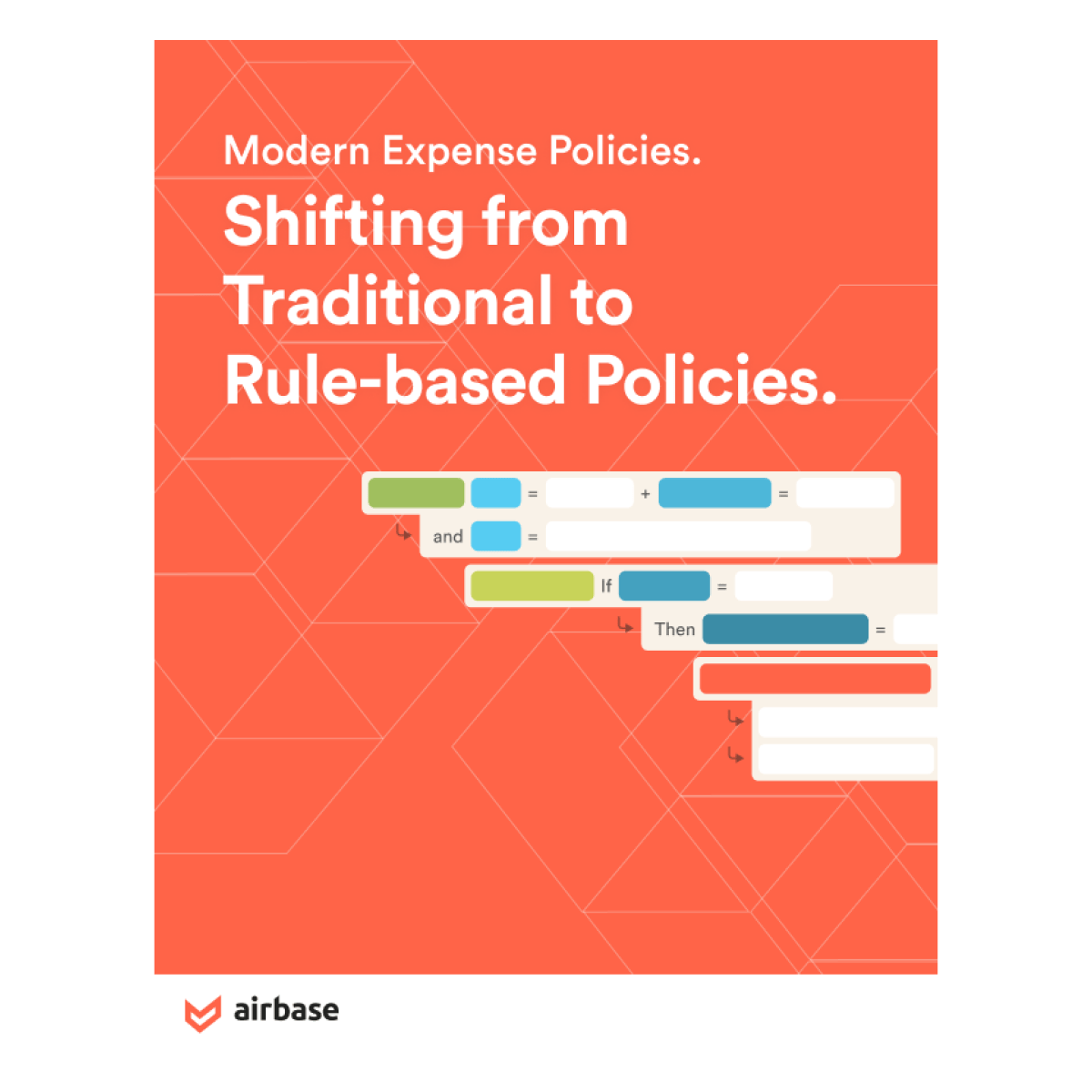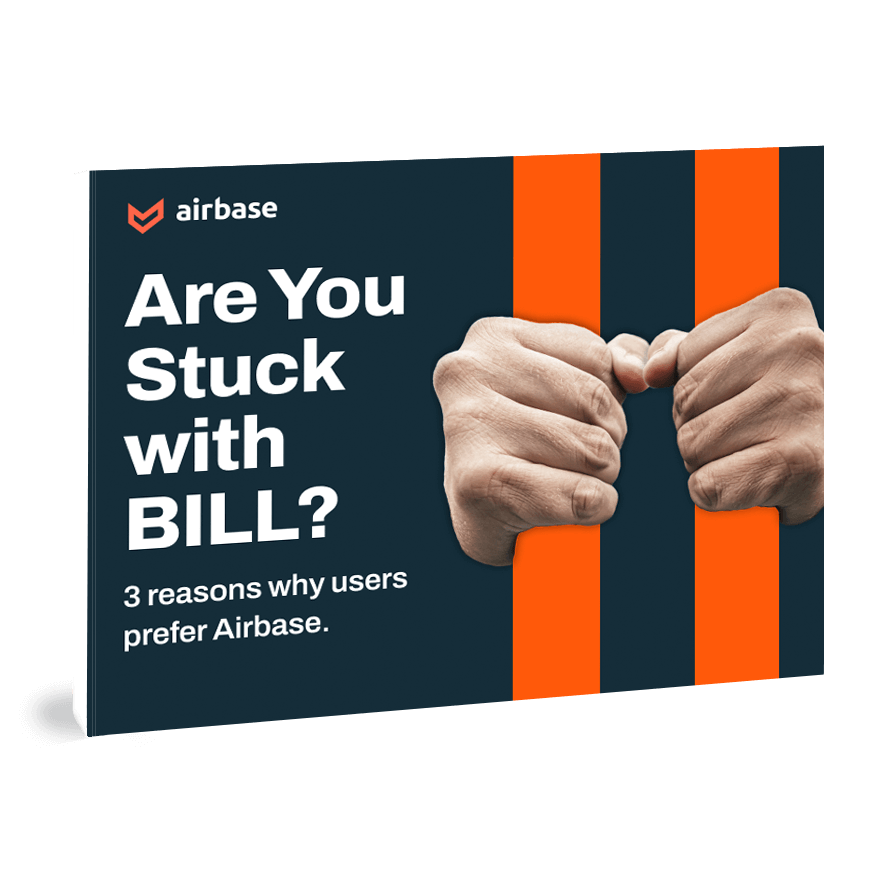Guide To Creating Rule-Based Expense Policies

What you’ll find in this Rule-Based Expense Policy ebook:
Policy guidance for selecting payment method.
Spend management provides a choice of several different payment types. Help your teams select the best one.
01 
Language-based vs. rule-based policies.
Written policies are subject to interpretation and reliable recall by stakeholders; these are burdensome to enforce and track compliance for. A self-enforcing system built on programmed rules gets around such problems.
02 
Benefits of shifting to a rule-based system.
Quick approvals, rapid reimbursement, transparency, automatic compliance and more.
03 
Building your rules.
The foundation of any rule-based system is defining terms and parameters to provide scaffolding for rules. This section covers the various pieces you should consider, and how they go together, when constructing your rules.
04 
Policies and best practices for different payment methods.
Which payment method is most appropriate for an employee to use? While the answer to this is largely dependent on the situation and company preferences, we examine some determining factors and cover recommended best practices.
05 
Examples of rules constructions for different use cases.
Examples from three common expense policy uses cases set up for a rule-based system: T&E, SaaS subscriptions, and purchases for the home office.
 Jira Integration – Streamline Your Workflows
Jira Integration – Streamline Your Workflows  Ironclad Integration – Simplify Legal Operations
Ironclad Integration – Simplify Legal Operations  Asana
Asana 



